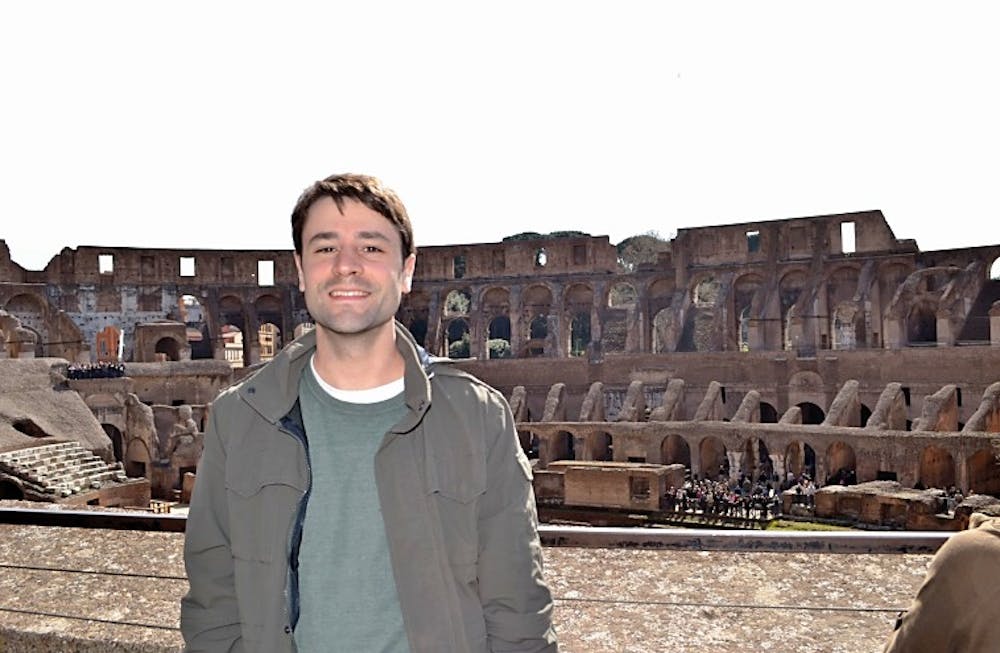Monday night marked the highly-anticipated presidential debate between Republican nominee Donald Trump and Democratic nominee Hillary Clinton—the first in what will be a series of three debates. The Chronicle asked Christopher Johnston—assistant professor of political science whose research centers on political psychology and public opinion—about how the candidates fared, the techniques they employed in the debate and the role that fact-checking plays in the election.
The Chronicle: Who do you think won the debate Monday and why?
Christopher Johnston: If we look at indicators that are relatively objective, it seems likely that Clinton won. In particular, I am looking at the following indicators: in CNN’s poll of registered voters who watched the debate, 62 percent said Clinton “did the best job,” while 27 percent said Trump “did the best job.” The prediction markets show an increase from pre- to post-debate in the probability that Clinton will win the election, and the Mexican peso rose in value against the dollar pre- to post-debate. When you take these and other indicators together, the conclusion that Clinton won seems reasonable.
TC: What persuasive techniques did you see the candidates using last night and do you think they were effective?
CJ: Trump looked to neutralize Clinton’s natural advantages on some domestic economic issues such as paid family leave, stating that they differed only on the details, and then sought to sharply distinguish himself on dimensions where he may have a natural advantage, in particular, trade and law and order. I think he was most successful last night on these issues. For example, he sought to portray Clinton as a political insider who cannot be trusted to negotiate trade deals that will benefit average Americans.
On the whole, Clinton is in the lead, and I think she is accordingly playing a low-variance strategy: maintain composure, demonstrate competence on the issues and let Trump be Trump. The debate can then serve as a striking demonstration of differences in temperament. I think she was successful in this regard.
TC: Some have criticized Clinton for being too informal during the debate, stooping down to Trump’s level. What do you make of that?
CJ: I can see where that view comes from—for example, her continuous use of the informal “Donald,” and the speculation about the reasons for his refusal to release his tax returns. On the whole, however, I would hesitate to characterize either candidate as sinking to a particularly low level. It wasn’t your average debate, but it wasn’t all mudslinging either.
TC: What influence do you think fact-checkers’ reports of candidates’ claims have on voters?
CJ: I am not sure that political scientists have a solid answer to this question yet. It is a complex issue. The high-quality research conducted to date suggests that fact-checking may indeed increase political knowledge. For example, one study by Brendan Nyhan and Jason Reifler randomly assigned people to receive or not receive fact-checks, and found that people exposed to fact-checks were somewhat more knowledgeable at the end of the study. Other research, however, suggests that citizens resist new information that strongly conflicts with their prior beliefs and attitudes. Further, even if people learn from fact-checks, this does not necessarily mean that they will change their overall view of the candidates. We need to do more research on fact-checking before we can know for sure how it influences voting behavior.
TC: Why do you think that voters can know facts about certain candidates but refuse to believe them?
CJ: People are not immune to reality, but there is usually some residual uncertainty, even on things that are labeled “facts,” and candidates’ statements are often vague and can be spun in multiple ways. Just take a look at The New York Times debate fact-checker to see how hard this can be. For example, did Trump support or oppose the Iraq war in 2002? He is seemingly on record in support during an interview with Howard Stern, but perhaps he was speaking off the cuff, and his true opinion really was opposition. It is hard to admit that “our team” is wrong about something because we lose face. If there is room for doubt, we latch onto it.
Editor’s note: All responses were obtained via email.
Get The Chronicle straight to your inbox
Signup for our weekly newsletter. Cancel at any time.

